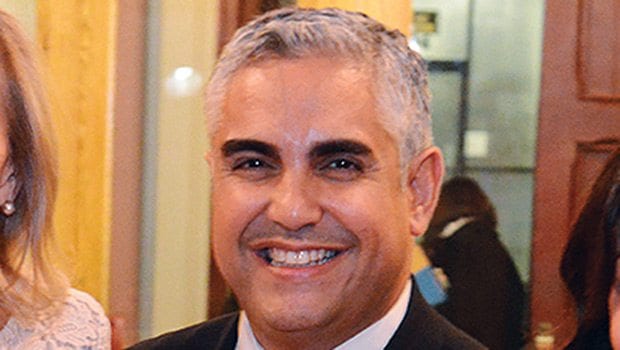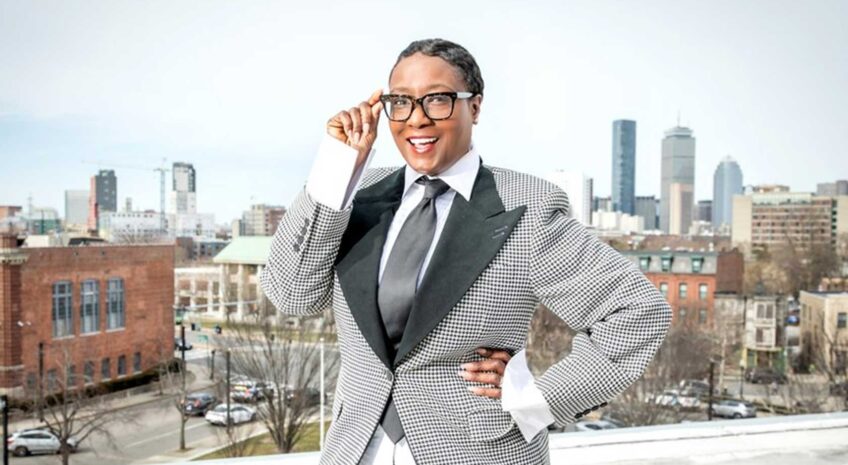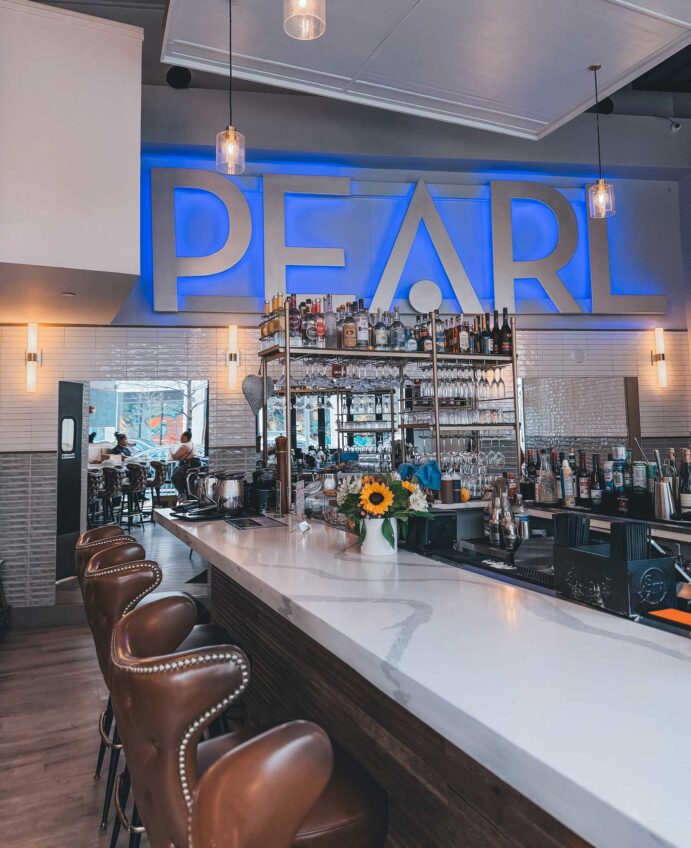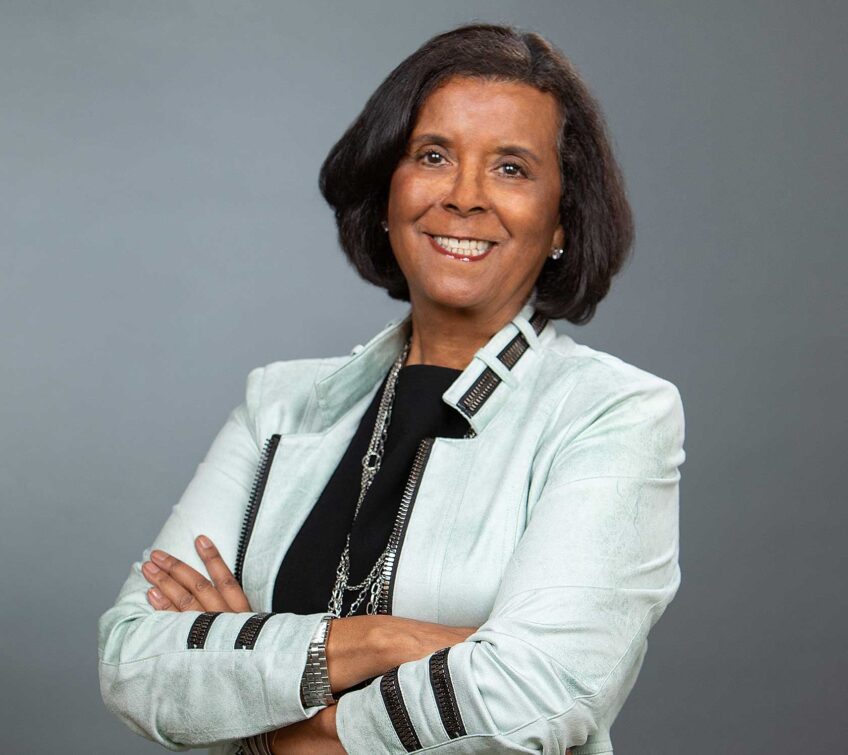Forming partnerships: The Latino Legacy Fund
Group looks to change trajectory for Boston Latinos by leveraging resources and forging relationships

The Latino Legacy Fund, a partnership of local Latino philanthropists and leaders, the Boston Foundation and Hispanics in Philanthropy, is building an initial $1 million endowment fund to support Boston-area Latino programs. Co-founders Aixa Beauchamp, a 20 year veteran of philanthropy in the United States, Europe and Latin America, and Juan Carlos Morales, a financial service executive with companies include TIAA-CREF Asset Management and State Street Global Advisors, spoke to Banner Biz about why they founded the Latino Legacy Fund, how the fund-raising has been going and the importance of the support of the Latino business community.
As co-founders of the Latino Legacy Fund, what do you view as your most important priority in leading the group?
Aixa Beauchamp: The most important priority in leading the Latino Legacy Fund group is keeping our mission at the center of what we do. These folks are committed to helping change the trajectory for Latinos in Boston by leveraging our resources and bringing other partners to the table. Hence, building infrastructure, resources and tapping into innovation are important elements of building the Latino Legacy Fund.
What drove each of you to start the Latino Legacy Fund? What is the value of taking part for you personally? When you talk to others about becoming involved what is the one thing above all else that you tout as a benefit of involvement with what you are doing?
AB: For me giving back is an obligation. My parents came here from Puerto Rico to pursue the American dream. Their values were grounded in hard work and helping family and neighbors. I also had the benefit of attending school in the 1970s when a cadre of young professional, mostly white, were going into education and trying to change the trajectory for kids in inner city communities. These teachers and my parents’ core values helped push me, academically and motivated me to do better. Unfortunately, the American dream is crumbling for many of our families, but we have the chance to address that through philanthropy. I want to help change the trajectory for our Latino kids and provide the same opportunities I had in life and that my own kids have right now. It’s about lifting a whole community not just your own family unit — that’s the power of philanthropy.
Juan Carlos Morales: There’s a tremendous market gap in Greater Boston — Latinos represent one of the most significant growth segments, yet the level of attention across government, corporations and influential individuals falls behind when compared to other identity-based groups. I place immense value on ensuring our tribe’s economic wellbeing is trending upward and on the hope that over time we can make a dent in the issue of generational poverty that many Latinos are faced with in Greater Boston.
The Latino Legacy Fund has a stated goal of raising $1 million for a permanent endowment to strengthen the Latino community in Greater Boston. How are the efforts toward this goal going, and when do you think you will hit your target?
AB: We are moving in the right direction. Currently, we are at 66 percent of our goal before the expected timeframe. That is a big achievement. Although Latino funds are not new (they have been around for 25 years in cities like New York, LA, Chicago and Denver) this is a first for Boston, and we are hoping that the fund grows to meet the needs of Latino communities throughout Massachusetts.
JCM: I am confident that we will be raising our goal in the near future. $1 million is not going to move the needle, but it will create the momentum that we need to get the fund to get a sustainable corpus — $5 million, $10 million or $20 million. This will be a fun ride and I am just humbled and thrilled to be part of it.
You have clearly labeled improving education as step one in securing a stronger future for Boston’s Latino community. What kinds of initiatives can a fund support in order to do so?
AB: At present we are focused on improving the educational needs for our youngest Latinos. Why? Research has shown that investments in early education for Latino (and for the matter most low-income children) have huge dividends in the future. For instance, Latino children who experience high quality early education have increased test scores by as much as 75 percent. We were also alarmed by the fact that close to 75 percent of our Latino kids cannot reach proficiently by fourth grade. What are you chances of finishing high school if you can’t read by fourth grade? This is why we wanted the Latino Legacy Fund’s first investment to be education.
The organization also emphasizes the importance of working with partners to achieve its goals. Why are partners so important to what you are doing? What are the kinds of partners have been stepping up so far to help?
AB: The Boston Foundation and Hispanics in Philanthropy are our strongest partners in this venture. Without their support, launching this initiative would have been very difficult. Other partners include our corporate community such as, Massachusetts Financial Services, Eastern Bank and John Hancock. And our most important partners are our committee members and other individuals who have stepped up to the plate to support this initiative. These folks really want to make an impact in leveraging their resources for our community now and in the future.
The Latino Legacy Fund’s Advisory Committee is made up of some of the most successful Latino businessmen and businesswomen in the community. How important is it to have these high profile individuals involved, and how can they serve as examples of the potential of the Latino community?
AB: We could not have done this work without these individuals who stepped up to the plate because they recognized the huge gap that existed in funding for our community and wanted to do something about it. Also, our committee members have all been involved in their community as generous donors, board members and volunteers; they know the importance of helping to advance our community and are committed to that goal.
JCM: There are many of us out there. It’s just that we’re not all very visible. The fund will serve as a magnet to attract, develop and retain this type of talent in Greater Boston.
Do you think the continual and improved success of the Latino community in the Massachusetts economy is important to support the type of initiatives the Latino Legacy Fund endorses?
AB: Absolutely! Latinos have become this nation’s youth engine, and as a result, a group that is vital to the U.S economy. The increasing upward mobility of Latinos will constitute an important source of new philanthropic capital for this country. Latino philanthropy can transform the ways that generosity flows through and to our community, creating new philanthropic resources and new forms of influence and invigorating the way philanthropy is practiced.
JCM: Yes, the economic recovery of Latinos and the improvement in the poverty rate is critical to the commonwealth. Why would you not want your fastest growing constituency to accelerate its achievement of the American dream? Retirement security, education, housing, and health care are all critical factors in how our economy will look by 2050. At that point Latinos will represent 20-25 percent of the U.S. population (and taxable base). We would want the prosperity of Latinos to fuel the prosperity of Massachusetts and the vibrancy of the city of Boston.
When you look at any group or organization that supports a community based on heritage you also often see an effort to help strengthen small businesses or entrepreneurs serving or from that community. Can the Latino Legacy Fund play a role in this kind of development?
AB: As the fund grows, we definitely see a space for helping to strengthen small business. Economic prosperity is vital to the growth of our communities, and many of these small businesses are powerhouses in their communities. In fact, I recall reading an article that women and minorities are the fastest growing small businesses. So, it makes economic and community sense to support the Latino small business.
While the Latino Legacy Fund can surely thrive with a connection to successful and established business professionals, it is always important to connect with younger generations in order to stay relevant for the future, as well as promote future growth. What are some or your efforts to do so?
JCM: We have small business owners and entrepreneurs on the leadership team, but we are not quite there in terms of the younger generation. We should and will get better at this over time as the fund builds its balance in a sustainable way, which is our key priority right now.
Where do you see the Latino Legacy Fund in the next several years? Where do you see it in the next decade?
AB: My dream is that the fund eventually will be a $25 million (or more) source of capital that can help address a variety of needs in our community. In addition to resources, I want to spur the next generation of Latino philanthropists. If we are going to spawn the next generation of Latino leaders, it makes sense for us to invest our capital in our communities and help strengthen our communities’ social fabric. At the end of the day my greatest wish is to have a whole generation of young Latinos powering this nation and being part of the social, political and mainstream civic life of this country.
JCM: The first million is the hardest one, and we are almost there. I also see the fund as “talent magnet” — attracting folks that understand the meaning of “paying it forward” and who are ready to step up to the plate in terms of civic, socio-political and thought leadership regarding issues affecting the Latino community.


![Banner [Virtual] Art Gallery](https://baystatebanner.com/wp-content/uploads/2024/04/Cagen-Luse_Men-at-store-e1713991226112-150x150.jpg)



